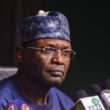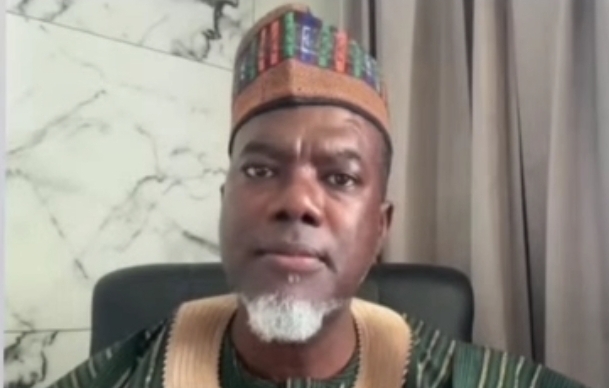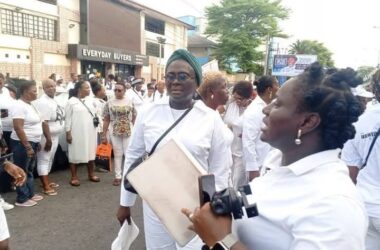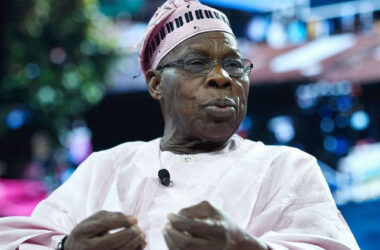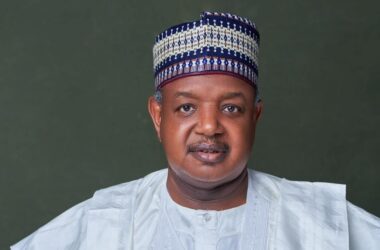Former presidential spokesperson and socio-political commentator, Reno Omokri, attributed Nigeria’s 2024 trade surplus to the bold economic decision by President Bola Tinubu to float the naira, ending years of costly dollar subsidies.
He made this known on Sunday while speaking on Inside Sources with Laolu Akande on Channels Television.
According to Omokri, the previous policy of artificially maintaining the naira’s value created a false sense of wealth that led to wasteful consumer spending. “Do you know what Nigerians were using that money to do, the cheap dollars?” Omokri asked rhetorically. “We were spending $200 million annually importing human hair for our women, $75 million on French champagne, and £25 million on Scotch whiskey.”
He argued that these luxuries reflected misplaced priorities at a national scale. “If we were using the cheap dollars to import things that would grow our economy—like technology, industrial equipment, or medical tools—then subsidizing the naira might have made sense. But instead, we were pissing away national resources on vanity.”
Omokri praised President Tinubu’s decision to float the naira, noting that it made imports more expensive and forced Nigerians to begin patronizing local products. “That’s why we now have a $14.1 billion trade surplus, something that has never happened before,” he said. “Tinubu has done what Vietnam did—float the currency, boost local production, and reduce unnecessary imports.”
To make his point, Omokri referenced his own outfit. “Everything I am wearing from head to toe is made in Nigeria. That’s how we are going to grow this economy.”
Omokri also took aim at Labour Party presidential candidate Peter Obi, accusing him of hypocrisy. He revealed that a bank where Obi once held majority shares—still owning about 10%—posted massive profits. “Last year, they declared a profit of ₦124.3 billion. This year? ₦385.4 billion. That’s over 300% growth,” Omokri said.
“So if Obi claims the economy is not growing under Tinubu, how is his bank making record profits? In his 64 years, Peter Obi has never made as much money as he has under President Tinubu,” he asserted.
Pointing to international ratings, Omokri referenced Fitch Ratings upgrading Nigeria’s economic outlook to ‘Stable B’, despite previously downgrading even the United States. “Fitch is the gold standard. If they say Nigeria is improving, who is Peter Obi to disagree?”
Omokri dismissed claims that President Tinubu is worsening the debt situation, stating instead that Nigeria’s external debt has declined. “Tinubu inherited a debt of $108 billion. Today, it’s $94 billion. That’s a $14 billion reduction.”
He continued: “He has exceeded the expectations of most reasonable Nigerians. He’s reduced our debt, grown a trade surplus, and made Nigeria a petrol exporter in West Africa. That’s leadership.”
Omokri defended the naira’s sharp depreciation—now trading around ₦1,560 to the dollar—not as failure, but as correction. “Under Buhari and previous administrations, the naira was being subsidized at $1.5 billion monthly. We were borrowing just to make the naira look good.”
Now, according to him, the naira’s real value is no longer hidden. “It’s painful, yes, but necessary. People protesting about the rate forget that the so-called stable naira of ₦165 was a lie propped up by unsustainable borrowing.”
Responding to criticisms about recent government expenditures, Omokri clarified that the vice president’s residence was not Tinubu’s initiative. “That project began under our administration and continued under Buhari. It’s already 95% completed. Halting it now would be a waste.”
Similarly, he defended the decision to purchase a new presidential jet. “It’s a third-hand jet and only 5% of the cost of the U.S. Air Force One. In fact, flying commercial would be more expensive when you consider dollar-cost averaging.”
Highlighting the Nigeria First Policy, Omokri noted that Tinubu has mandated MDAs to prioritize Nigerian-made goods. “Ministers can’t just jet off with 15 aides anymore. There’s now a strict limit on entourage sizes, and budget allocations for travel are lower than under Obasanjo, Yar’Adua, Jonathan, or Buhari.”
He recalled that during Obasanjo’s four-hour visit to Kano in 2001, the state reportedly spent ₦10 million. “And that was when the naira was just ₦120 to the dollar.”
Omokri pointed to Tinubu’s push for local government autonomy as a structural reform with long-term benefits. “Funds that were trapped at state level are now set to go directly to LGAs. Yes, governors are resisting, but when this takes full effect, the masses will finally begin to feel the impact.”



